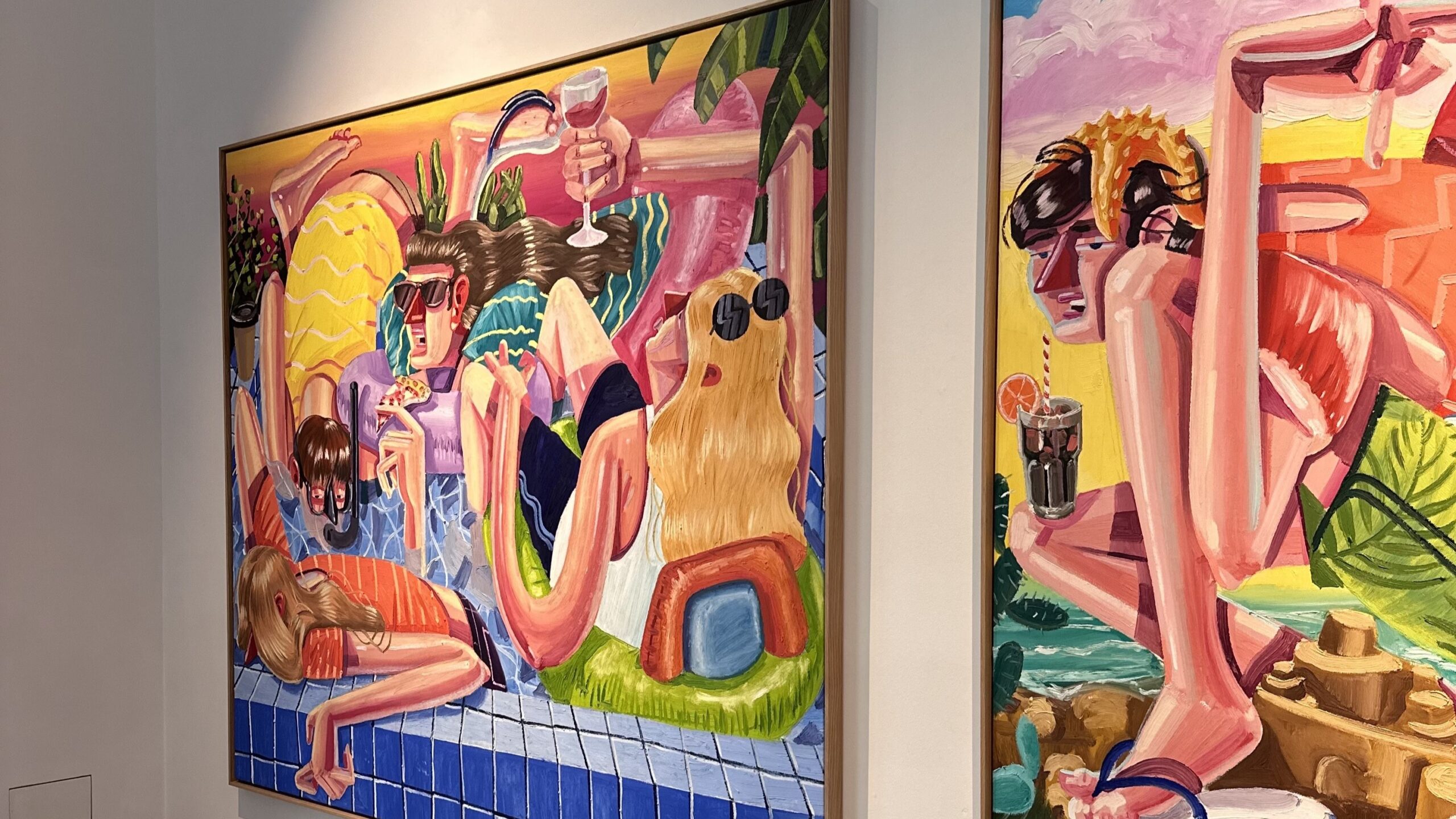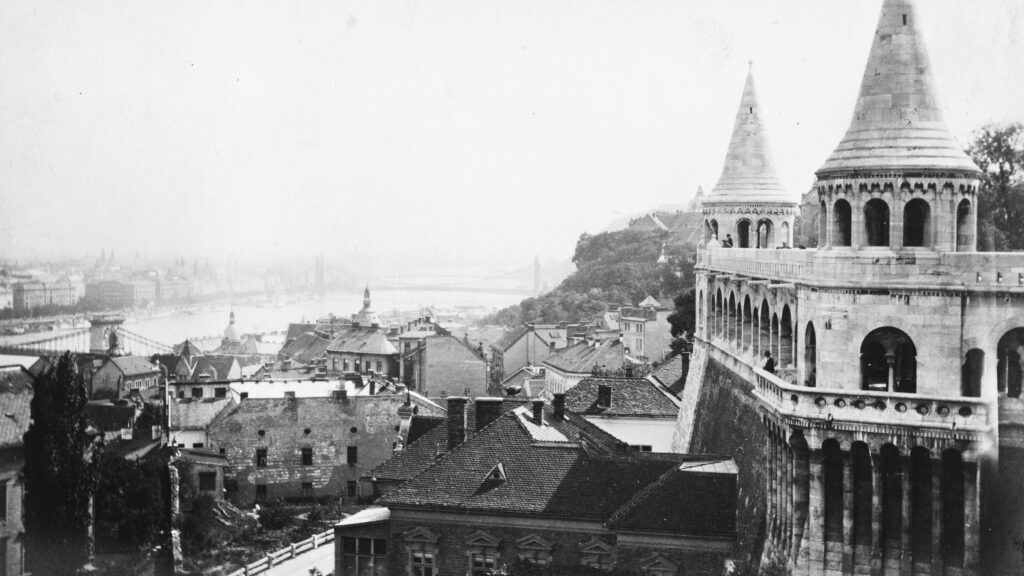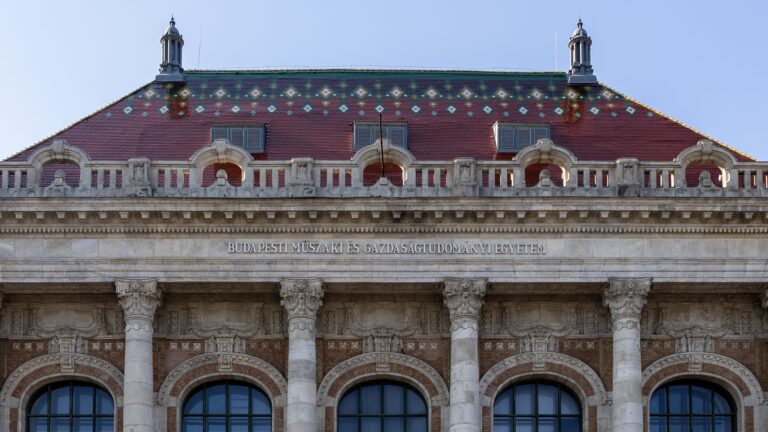At Einspach & Czapolai Fine Art in Budapest, Hungarian painter Ákos Ezer presents his latest solo exhibition titled ‘…and the livin’ is easy.’ Borrowed from George Gershwin’s timeless 1935 lullaby Summertime, the title sets the tone for an ironically charged reflection on summer, not as a carefree escape but as a season of concealed tension, quiet absurdity, and emotional misalignment.
Gershwin’s Summertime evokes the golden age of the pre-war era, a time shaped by clumsy perfectionism and an optimistic pursuit of idealism, however fragile. Written in 1935, the song hovers between innocence and uncertainty, offering the promise of easy livin’ that always carries something unsaid beneath its melodic calm. This restrained mood of imperfect grace is one that Ezer captures and gently undermines throughout the exhibition.
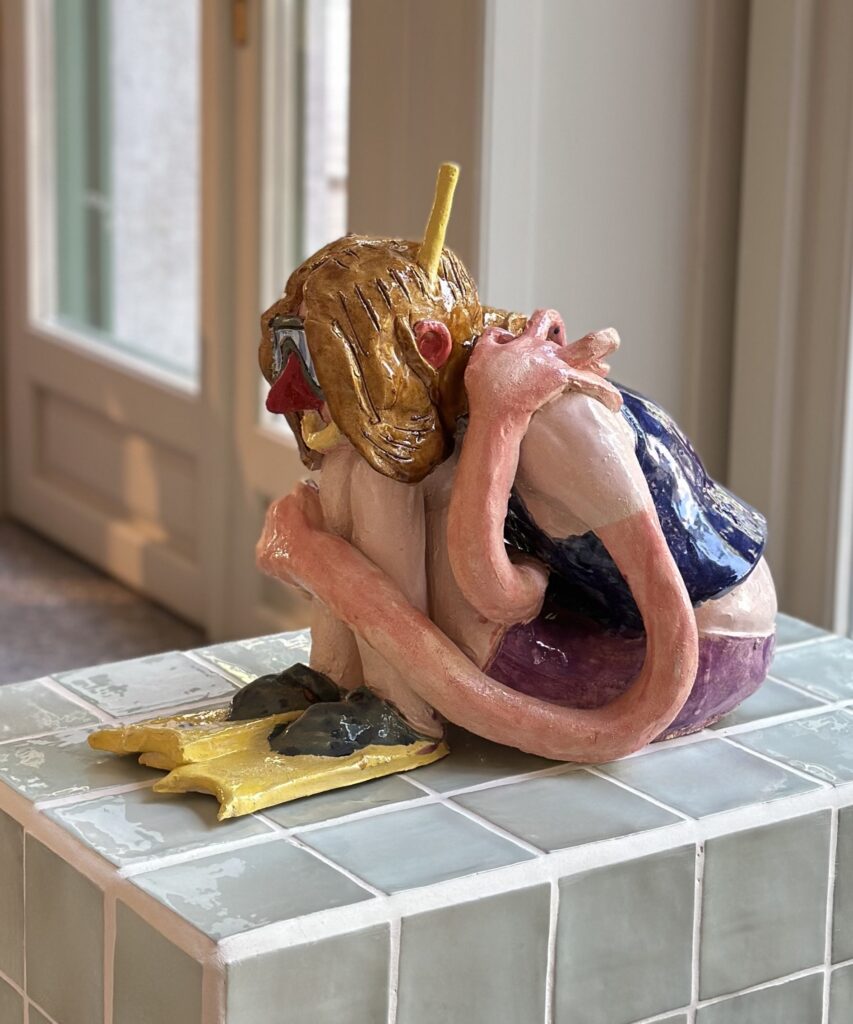
His large-scale canvases, most notably ‘Hot tub’ (2025, oil on canvas, 200 x 235 cm), shine with vibrant colour, drawing on the warm, nostalgic tones of American retro. Figures appear with sunburnt noses, subtly marked by the heat and light of summer, revealing the discomfort that often comes with the season’s supposed ease. The visual language borrows from mid-century imagery, bold, familiar, and bright, yet the scenes are tinged with unease. The bodies twist awkwardly, gestures are interrupted, and moments meant to be relaxing feel curiously strained.
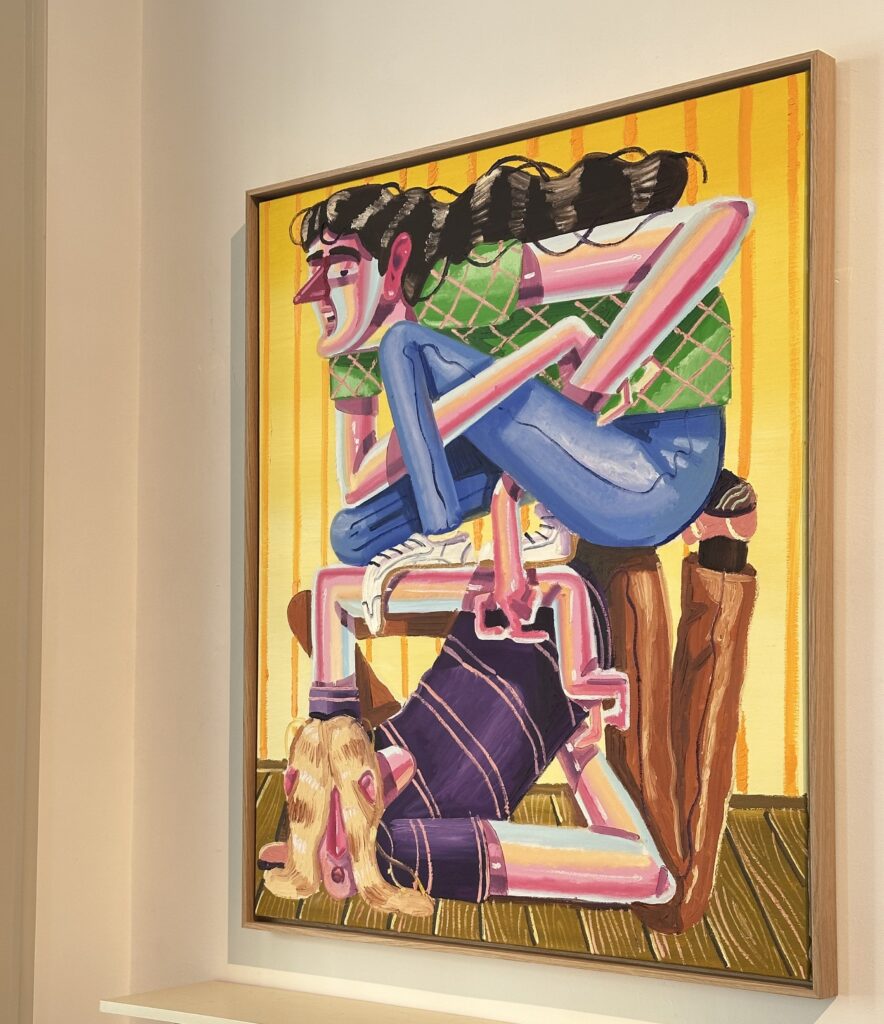
Ezer avoids grand drama. Instead, he captures ordinary people caught in small stumbles and everyday confusion, disoriented, off-balance, and slightly defeated. These are not tragic characters but recognizable ones. A broken-down car, a sudden hailstorm, a trip gone wrong—such disruptions define his vision of summer more than any picture-perfect ideal. In these familiar setbacks, Ezer locates a subtle but truthful spirit of contemporary life.
Adding to the narrative, several sculptures appear in the exhibition, both humorous and slightly surreal. A tangled snorkeller wrestles with his own limbs, while a blond male face emerges with a kiss from behind a bush. Each piece echoes the same uneasy charm found in the paintings.
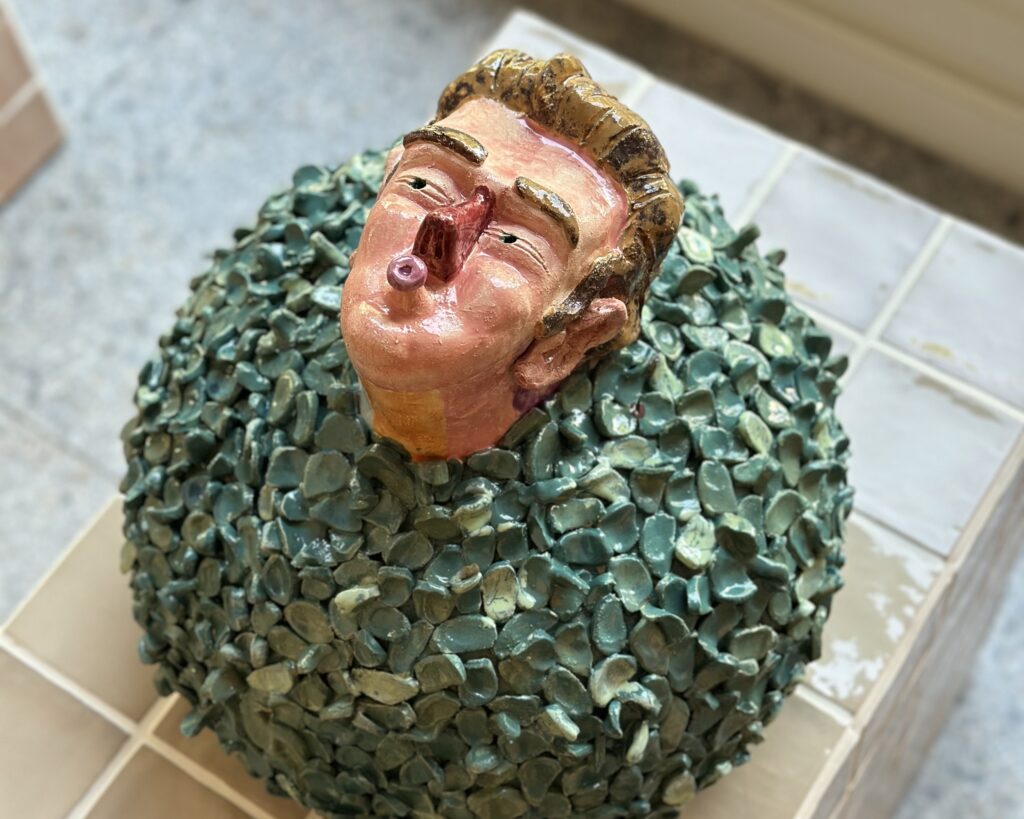
A deeper layer of meaning is introduced through the lens of psychology, particularly the Ironic Process Theory developed by American psychologist Daniel Wegner. The theory describes how the harder we try to suppress certain thoughts, the more persistent they become. Two mental processes are at play: one conscious and effortful, the other automatic and watchful. Ironically, the second one often keeps the unwanted thought alive. Ezer translates this idea into visual form, with bodies that betray restraint, scenes where emotions cannot quite be hidden, and gestures that feel like failed attempts at control.
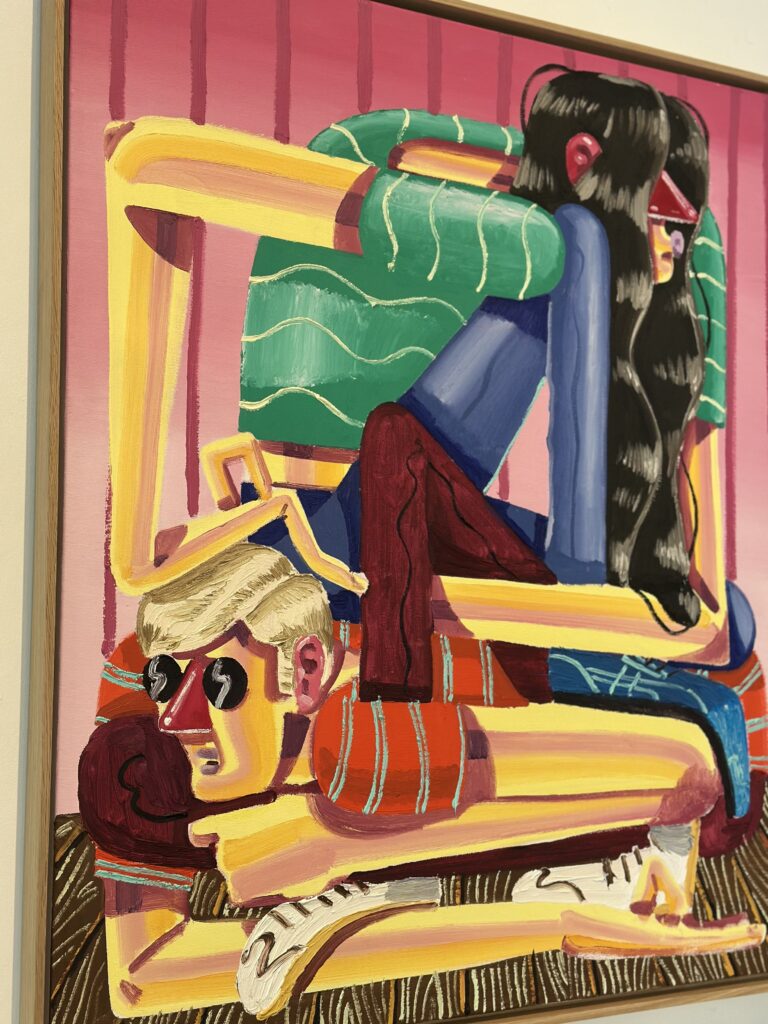
His figures embody the struggle between repression and return. The effect is both poignant and intellectually sharp. Ezer works within a recognizable figurative style but introduces just enough distortion to unsettle the viewer. There is still clarity and form, yet the scenes teeter just before calm. In a time when contemporary art often leans toward loud statements or vague abstraction, this level of thoughtful discipline is worth noting. In short, ‘…and the livin’ is easy’ offers a quiet but compelling meditation on the imperfect nature of modern life. Like the Gershwin song that inspired it, the exhibition wraps discomfort in beauty and irony in charm. For those with a more conservative sensibility, who value emotional restraint, subtle wit, and traditional craft, Ezer’s work stands as a timely and quietly powerful reflection on the contrast between what we long for and what we often receive.
Related articles:

